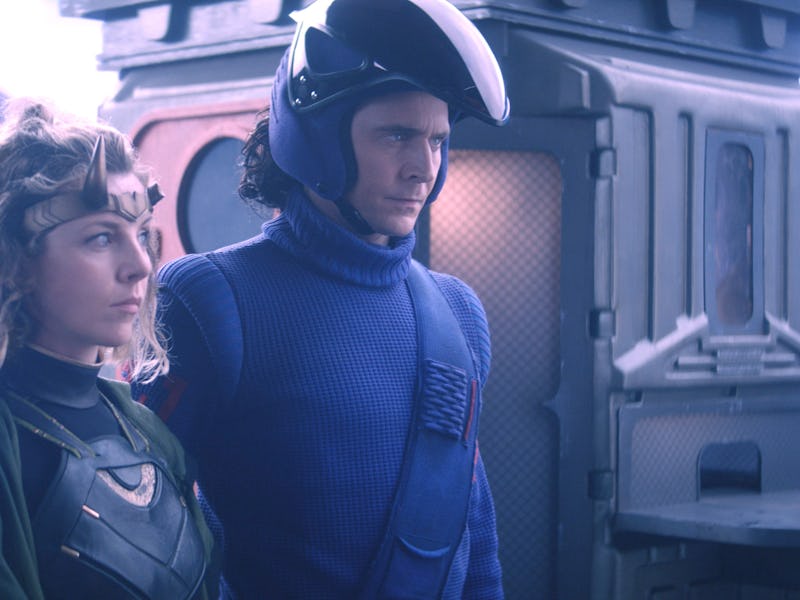Is Loki bisexual? Marvel finally fixes the worst part of the MCU
It’s been a long time coming.

Loki is hands down the most beloved kid brother in the Marvel Cinematic Universe.
Sure, he’s kinda evil. Yeah, he helped Thanos. But he makes jokes! He wears horns! He ruins salads! It’s hard not to love a character like that.
Disney+ series Loki doubles down on the trickster god with Sylvie, a mirrored reflection of Loki who adds even more chaotic fun to the mix. And now, in Loki Episode 3, these two characters finally fix the biggest blindspot in the MCU. Here’s why it matters.
Laying low on the Ark in Lamentis, Loki and Sylvie discuss their parallel lives. They don’t have everything in common: Sylvie knew she was adopted from the start, and Loki was taught by his mother while Sylvie’s powers are all self-taught. But they do share a romantic inclination.
First, Sylvie reveals she’s in a “long-distance” (across time and space) relationship with a postman. Then, she asks Loki if he’s had his eye on any princesses... or maybe a fellow prince.
He concedes he’s interested in a bit of both, assuming the same is true for her. A small bonding moment within a hugely tumultuous episode, this interaction nonetheless changes the MCU forever.
After years of no LGBTQ+ representation within more than 20 MCU entries, fans were finally tossed a bone in Avengers: Endgame, where a character in a support group played by director Joe Russo refers to having a male partner. Though the moment acknowledged that non-straight people exist within Marvel, this wasn’t a queer superhero, or even a role model. It was a director cameo.
Thankfully, Loki — and director Kate Herron in particular — are working to address this issue. In a tweet sent after her episode aired, Herron underlined how important Loki’s bisexuality was to her creatively and personally, saying it’s a huge part of both the character’s identity and her own. Bisexual people are now represented within the MCU, as well as behind the scenes, with directors like Herron bringing their own lived experience to telling such stories.
Loki being bisexual is nothing new. The character’s identity has always been difficult to pin down, even as far back as Norse mythology, in which Loki frequently shifted into female forms and was even once impregnated while existing in the form of a mare.
In the comics, Loki’s bisexuality wasn’t specifically stated until 2013’s Young Avengers #15, which depicted Loki having a late night conversation with David Alleyne, eventually saying, “My culture doesn’t share your concept of sexual identity.”
Loki and David Alleyne banter in Young Avengers #15.
While Loki has the luxury of not needing to address his identity on Asgard, Earth culture isn’t nearly so advanced. In publicly owning such labels, many humans find community, support, and found families, ideas that have always been key to the MCU.
In 2021, it feels overdue for Marvel to have just now introduced its first LGBTQ+ main character, but we’re lucky it’s Loki. He’s been a force in the franchise since 2012, and even when he’s dead, it’s clear he’s not going anywhere. And Marvel fans wouldn’t have him any other way.
Loki is now streaming on Disney+.